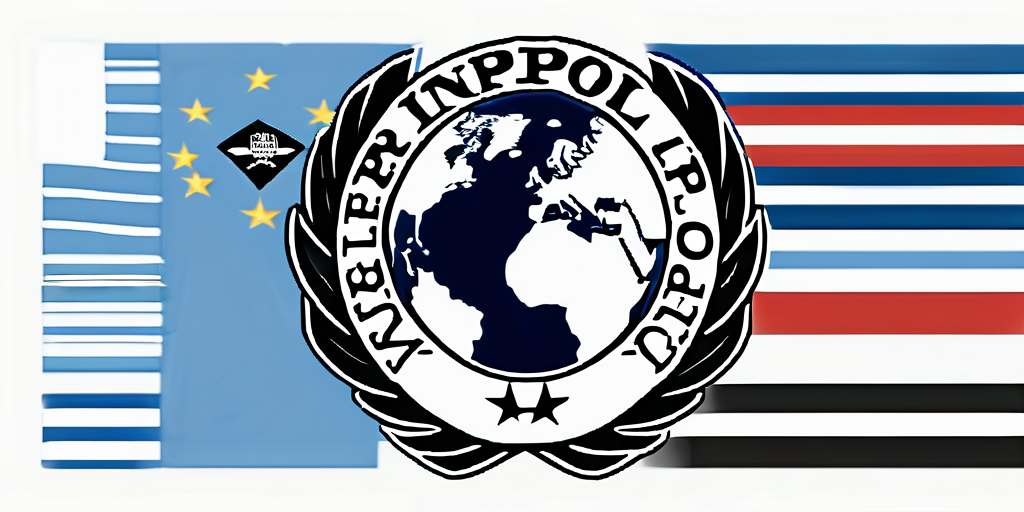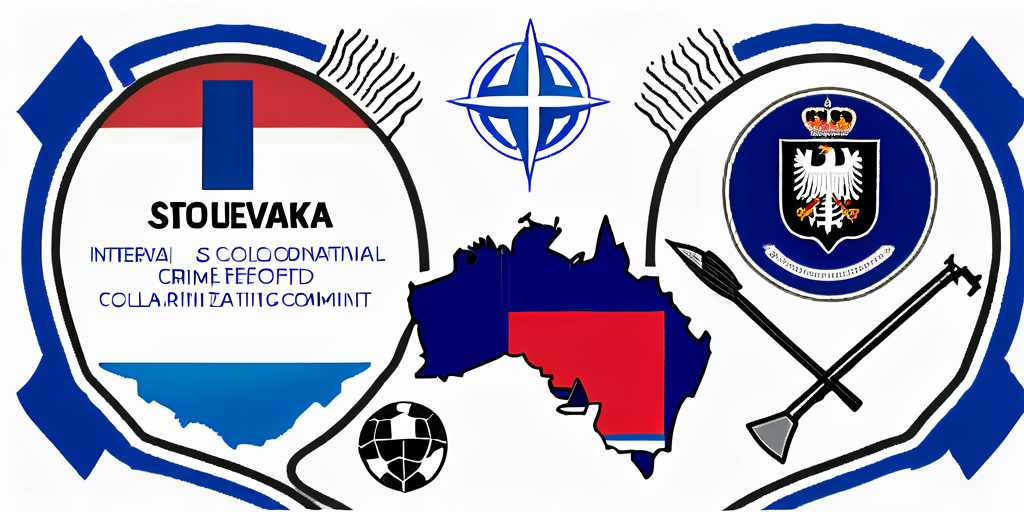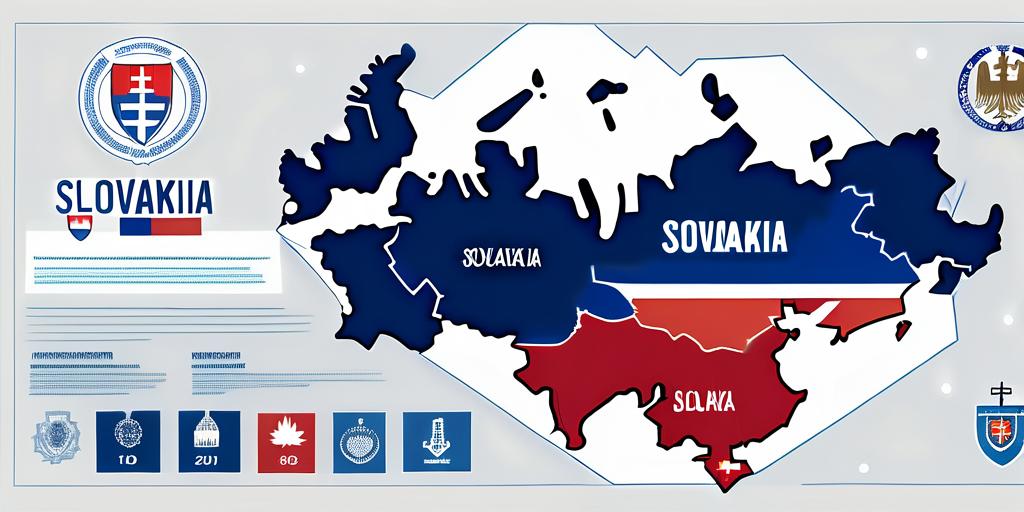In today’s interconnected world, international cooperation in law enforcement has become increasingly crucial. As a member of Interpol, Slovakia plays a significant role in promoting global security and ensuring the safety of its citizens. This article explores Slovakia’s involvement within Interpol, its contributions, and the impact it has on both the country and the international community.
Understanding Interpol: An Overview
Before delving into Slovakia’s role, it is essential to grasp the foundations of Interpol. Established in 1923, Interpol is an international organization dedicated to facilitating cooperation between police forces worldwide. Its primary objective is to combat transnational crime, including terrorism, organized crime, cybercrime, and drug trafficking.

Interpol’s impact on global law enforcement cannot be overstated. With its headquarters in Lyon, France, Interpol serves as a hub for international collaboration in crime prevention and investigation. The organization’s reach spans across 194 member countries, making it one of the most extensive and influential networks in the world.
The Structure and Function of Interpol
Interpol operates on a decentralized model composed of member countries. This organizational structure empowers each member nation to maintain a National Central Bureau (NCB) responsible for coordinating law enforcement efforts. Through the NCBs, member countries exchange intelligence, coordinate investigations, and issue international notices for wanted individuals.
Furthermore, Interpol’s General Secretariat plays a crucial role in supporting the organization’s day-to-day activities. It provides administrative and operational support to member countries, facilitates communication between NCBs, and oversees the implementation of Interpol’s policies and initiatives.
Interpol’s Global Impact
Interpol’s influence extends far beyond its member countries. Through its network of NCBs, Interpol ensures that critical information and expertise are shared across borders, enabling law enforcement agencies worldwide to address common challenges collectively. This global cooperation is imperative in tackling emerging threats and effectively combating transnational criminal networks.
Moreover, Interpol’s specialized units focus on specific crime areas such as human trafficking, environmental crime, and counter-terrorism. These units provide expertise, training, and operational support to member countries, enhancing their capacity to address complex and evolving criminal activities on a global scale.
Slovakia’s Entry into Interpol
Slovakia’s inclusion within Interpol was a significant milestone in the country’s law enforcement history. Let us explore the historical background of Slovakia’s membership and the process it underwent to join Interpol.

Interpol, short for the International Criminal Police Organization, is a global network that facilitates cooperation among law enforcement agencies of different countries. Slovakia’s decision to join Interpol was driven by a desire to enhance its ability to combat transnational crime, such as human trafficking, drug smuggling, and terrorism. By becoming a part of Interpol, Slovakia gained access to a wealth of resources, databases, and expertise that bolstered its crime-fighting efforts.
Historical Background of Slovakia’s Membership
Slovakia’s membership in Interpol dates back to the country’s independence in 1993 following the dissolution of Czechoslovakia. Since then, Slovakia has actively contributed to Interpol’s mission, leveraging its newfound sovereignty to strengthen the country’s law enforcement capabilities in tandem with international collaboration.
Over the years, Slovakia has played a vital role in various Interpol operations, including joint investigations, information sharing, and capacity building initiatives. This partnership has not only benefited Slovakia in combating crime within its borders but has also allowed the country to contribute to global security efforts.
The Process of Joining Interpol
Joining Interpol required Slovakia to meet specific criteria and abide by established guidelines. The process involved establishing the National Central Bureau (NCB), which serves as the country’s main point of contact with Interpol, facilitating communication and cooperation on international law enforcement matters. Additionally, Slovakia had to align its legislation with Interpol’s standards and demonstrate a commitment to upholding human rights and the rule of law.
Upon meeting these requirements, Slovakia was officially welcomed into the Interpol community, gaining a seat at the table alongside other member countries. This marked a new chapter in Slovakia’s law enforcement history, opening up opportunities for collaboration, information exchange, and joint operations to combat crime on a global scale.
Slovakia’s Contributions to Interpol
Slovakia’s engagement within Interpol goes beyond just being a member nation. The country actively contributes to the organization through various key operations and initiatives, pioneering regional collaboration, and leveraging its unique expertise.
One significant aspect of Slovakia’s contributions to Interpol is its commitment to enhancing cybersecurity measures. Slovakia has been at the forefront of developing strategies to combat cybercrime, working closely with Interpol to share best practices and technological advancements in this critical area. By actively participating in cybercrime task forces and information-sharing initiatives, Slovakia plays a vital role in safeguarding global digital infrastructure and combating online threats.
Key Operations and Initiatives
Slovakia actively participates in Interpol’s operational activities, including joint investigations, capacity-building programs, and specialized task forces targeting specific forms of crime. By sharing intelligence and joint operations, Slovakia contributes to disrupting transnational criminal networks and apprehending high-profile criminals.
Moreover, Slovakia’s dedication to promoting international cooperation in combating human trafficking deserves recognition. The country has been instrumental in leading efforts to raise awareness about this heinous crime, collaborating with Interpol and other member states to develop comprehensive strategies for prevention and prosecution. Through training programs and information exchange, Slovakia strengthens Interpol’s global response to human trafficking, protecting vulnerable populations and holding perpetrators accountable.
Slovakia’s Unique Expertise in Interpol
With its strategic location in Central Europe, Slovakia serves as a gateway connecting Eastern and Western Europe. This positioning grants Slovakia unique insights and expertise in areas such as border security, migration, and cross-border criminal activities. By sharing these insights, Slovakia enhances Interpol’s ability to address emerging threats effectively.
Furthermore, Slovakia’s proactive approach to combating environmental crimes underscores its commitment to promoting sustainability and protecting the planet. Through collaboration with Interpol’s Environmental Security Program, Slovakia contributes valuable resources and expertise to combat illegal wildlife trade, pollution, and other environmental offenses. By integrating environmental considerations into law enforcement practices, Slovakia demonstrates a holistic approach to security that encompasses both human and ecological well-being.
The Impact of Interpol on Slovakia
Slovakia’s participation in Interpol yields substantial benefits for both the country’s international relations and its domestic security framework.

Enhancing Slovakia’s International Relations
Being an active member of Interpol strengthens Slovakia’s collaboration with other member countries on various law enforcement fronts. By fostering strong relationships and trust, Slovakia bolsters its international reputation and enhances its standing in the global fight against crime.
Strengthening Slovakia’s Domestic Security
Interpol’s resources and capabilities are at the disposal of Slovakia’s law enforcement agencies. The ability to access Interpol’s extensive database, share intelligence with other member countries, and request assistance in investigations significantly enhances Slovakia’s domestic security posture and strengthens its ability to protect its citizens.
Future Prospects for Slovakia within Interpol
Looking ahead, Slovakia’s role within Interpol will continue to evolve as it navigates potential challenges and seizes new opportunities.
Potential Challenges and Opportunities
The ever-changing landscape of crime demands constant vigilance and adaptability. Slovakia must stay at the forefront of technological advancements, share best practices with fellow member nations, and advocate for the continuous improvement of Interpol’s operational capabilities to effectively combat emerging threats.
The Future of International Policing for Slovakia
Slovakia’s participation in Interpol serves as a testament to its commitment to international cooperation in maintaining law and order. As the challenges in the realm of global security become increasingly complex, Slovakia’s role within Interpol will continue to evolve, providing new avenues for collaboration and ensuring a safer world for all.
